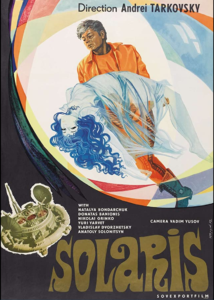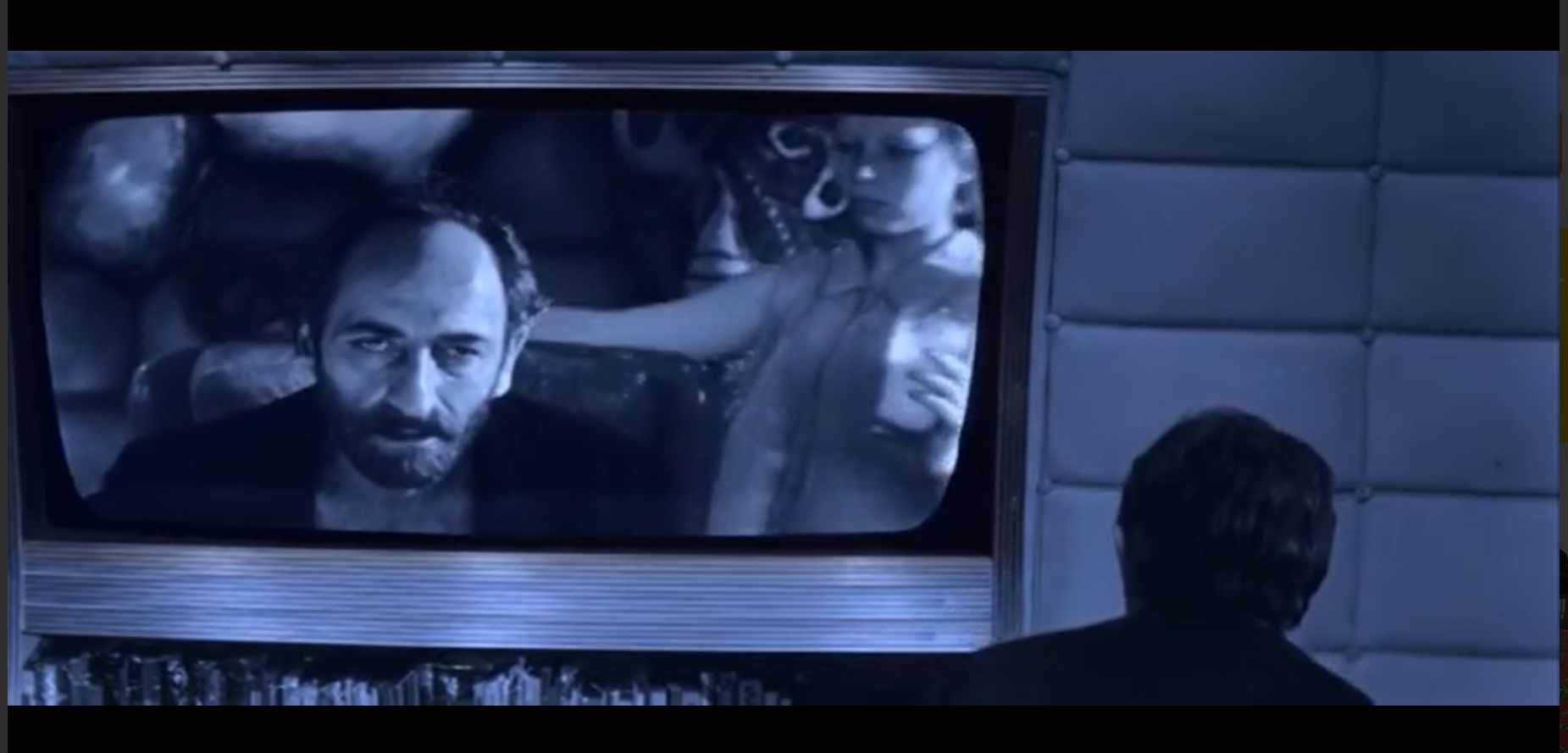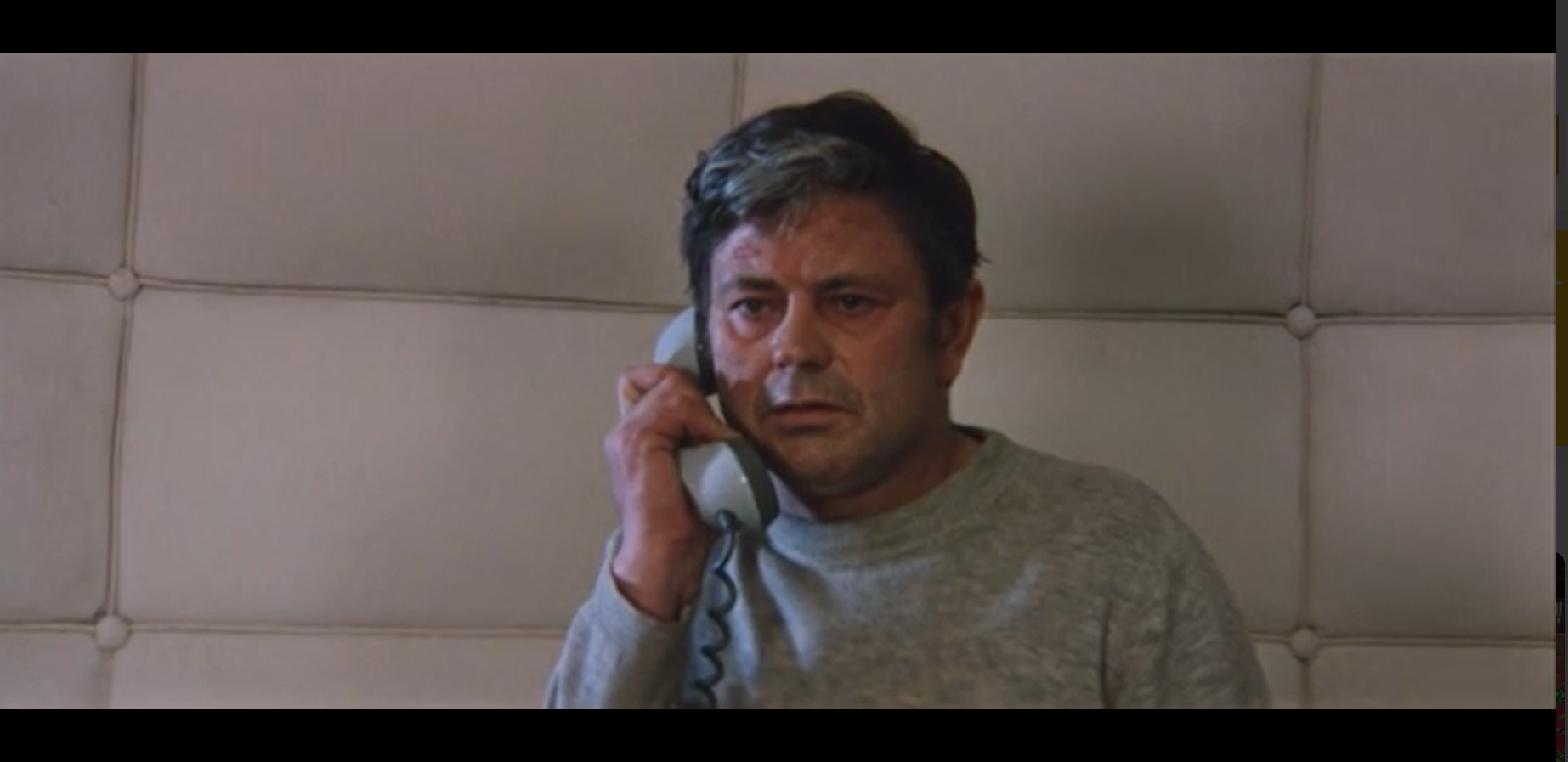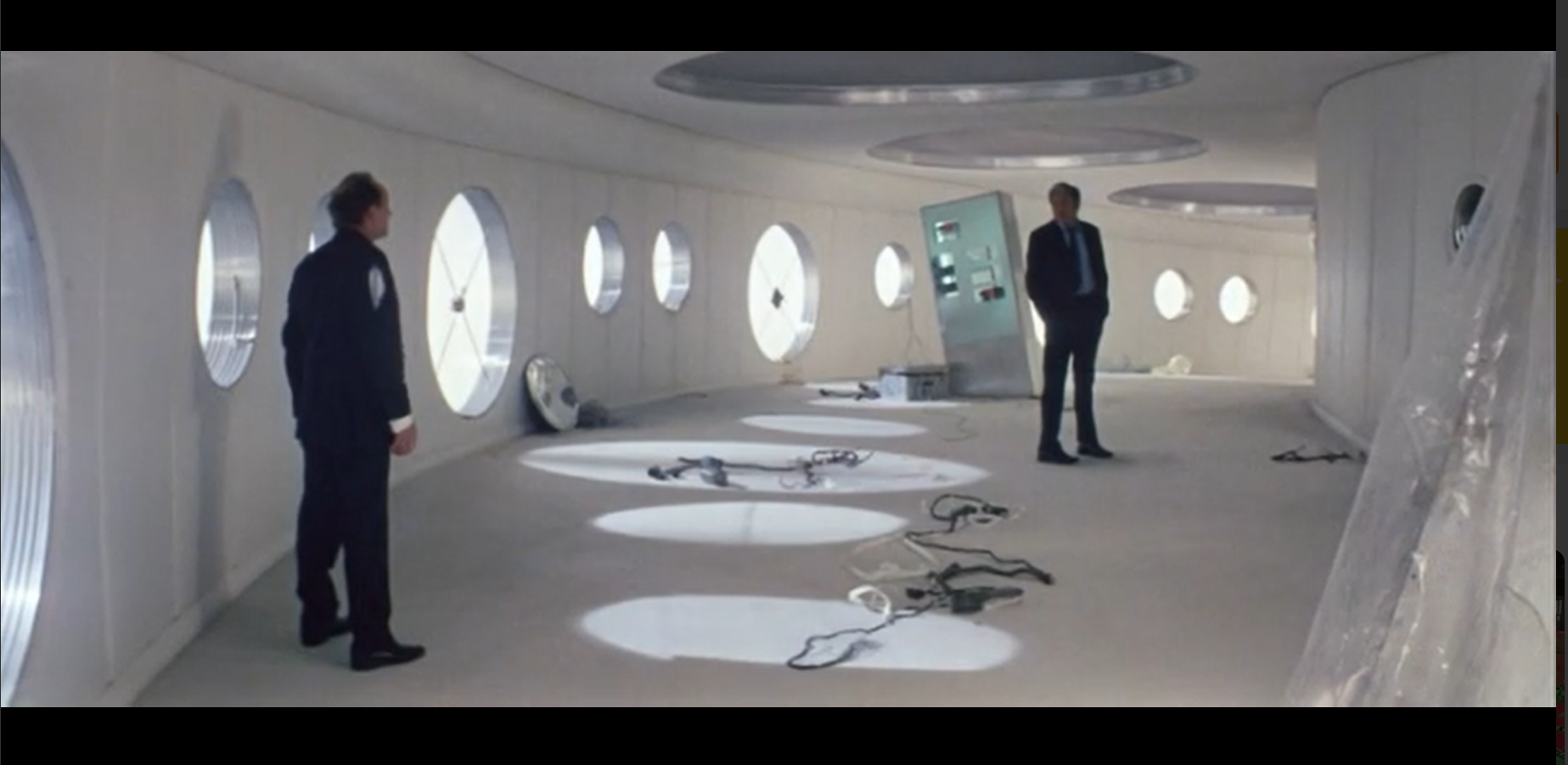“You mean more to me than any scientific truth.”
|

Synopsis:
When a psychologist (Donatas Banionis) is sent to space station Solaris to investigate the mysterious mental breakdowns of the men on board, he’s visited by visions of his deceased wife (Nathalya Bondarchuk), and finds himself confronting his guilt over her death.
|
|
Genres, Themes, Actors, and Directors:
- Guilt
- Mental Breakdown
- Science Fiction
- Russian Films
- Tarkovsky Films
Response to Peary’s Review:
Based on a novel by Stanislaw Lem (and recently remade by Steven Soderbergh), this “cerebral” Russian sci-fi film is “slowly paced and a bit too enigmatic”, but possesses visuals “like nothing seen in an American sci-fi film”, and is oddly hypnotic. You’ll be reminded of 2001: A Space Odyssey (1968) in the way relevant details are unfolded one by one, and the fact that the “enemy” is a mysterious presence rather than a physical creature. Perhaps most intriguing (and impressive) is the way Tarkovsky manages to combine creepy sci-fi with a very human subplot of guilt, loss, and love.
Redeeming Qualities:
- Haunting cinematography


- An unusual, psychologically complex premise for a sci-fi film


Must See?
Yes. This is a classic of Russian sci-fi cinema.
Categories
- Foreign Gem
- Important Director
(Listed in 1001 Movies You Must See Before You Die)
Links:
|
2 thoughts on “Solaris (1972)”
Yes, a must; not only for its place in Russian cinema, but also because it is simultaneously one of the strangest examples of sci-fi and love story. The fact that the film is often subtle (at times, unclear) is a blessing and a kind of curse: a blessing because director Tarkovsky respects his audience enough to allow them to bring their own experience to the film; a kind of curse because the almost-three-hour film is challenging (even if rewarding) to sit through and, for people who want to gain the most they can from it, will require at least two viewings. Appreciation of the film also increases if one knows something of the director’s personal philosophy – a source of frustration for those who generally want films to speak more for themselves.
The good news: there’s enough strength in the narrative to keep one from being lost – aside from the details. There’s lots to chew on and, though I won’t identify the speakers, I came away with three memorable quotes: “Knowledge is only valid when it’s based on morality.”; “Man is striving for a goal that he fears.”; “Maybe we’re here in order to experience people as a reason for love.” All three seem tied to the film’s overall theme of redemption.
The film’s final sequence will satisfyingly make you wonder what’s real and what’s not.
⭐️⭐️⭐️⭐️⭐️
One the all-time sc-fi flicks; mesmerising, thought provoking and moving. The remake (⭐️⭐️⭐️) ain’t bad either.